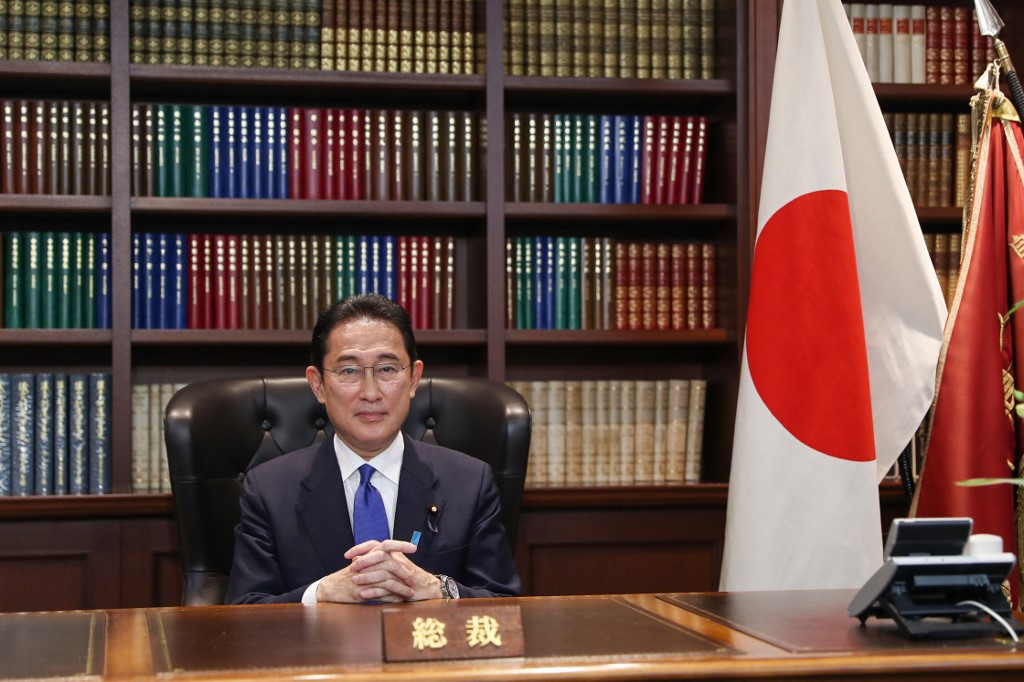Popular Reads
Top Results
Can't find what you're looking for?
View all search resultsPopular Reads
Top Results
Can't find what you're looking for?
View all search resultsJapanese envoy responds
The “Quad” is by no means a containment effort, much less a military alliance, but is an effort to promote a broad range of practical cooperation for the achievement of the FOIP.
Change text size
Gift Premium Articles
to Anyone
Y
our editorial on Oct. 7, 2021 “Japan's fear of China” is very misleading and I wish to make Japan's position clear and straight.
It is commonly known that bilateral relationships between neighboring countries tend to be sensitive and difficult to manage all over the world. I sense that the Japan-China relationship is no exception.
That said, building stable relations is critically important for both Japan and China, and these would benefit the region as well as the international community. Through this recognition, both countries promote cooperation bilaterally and in the international arena on common global challenges such as climate change and North Korea’s nuclear and missile development.
At the same time, Japan and China have been trying to manage difficult bilateral issues. On Oct. 8, newly elected Prime Minister Fumio Kishida held a telephone talk with President Xi Jinping. During their talk, PM Kishida expressed his candid views on various concerns between the two countries and reconfirmed that Japan will continue holding a dialogue with China, including on these difficult bilateral issues. The two leaders also shared their intention to continue cooperating on common global challenges.
Looking at the Indo-Pacific region, we are now confronting challenges against universal values and the international order that have so far underpinned peace and prosperity, caused by such developments as unilateral attempts to change the status quo and protectionism. This is the reality.
As a response, a number of countries and regional groups have started to take their own initiatives in a strong common belief that the world must continue to benefit from the reinforcement of the rules-based order. As part of its effort, Japan has promoted a rules-based “Free and Open Indo-Pacific (FOIP)” and this vision has won wide support from countries concerned including ASEAN, the United States, Australia, India and the European Union.
The “Quad” is by no means a containment effort, much less a military alliance, but is an effort to promote a broad range of practical cooperation for the achievement of the FOIP.
On the ASEAN front, Indonesia showed leadership in coming up with the “ASEAN Outlook on the Indo-Pacific (AOIP)”. Japan and ASEAN have repeatedly affirmed that the FOIP and AOIP share fundamental principles and have decided to proceed with concrete cooperation in the four priority areas outlined in the AOIP, namely, maritime cooperation, connectivity, UN Sustainable Development Goals 2030 and economic and other possible areas of cooperation. Human rights have always been in consideration, although Japan takes a different approach with a view to achieving the same goal as others.
PM Kishida, as foreign minister from 2012 to 2017, has been behind the evolving process of the FOIP and he reaffirmed his unwavering commitment to a rules-based “Free and Open Indo-Pacific” upon assuming the post of prime minister.
Please rest assured that Indonesia remains one of the most important partners as we promote our common vision into the future together.
***
The writer is Ambassador of Japan to Indonesia.










